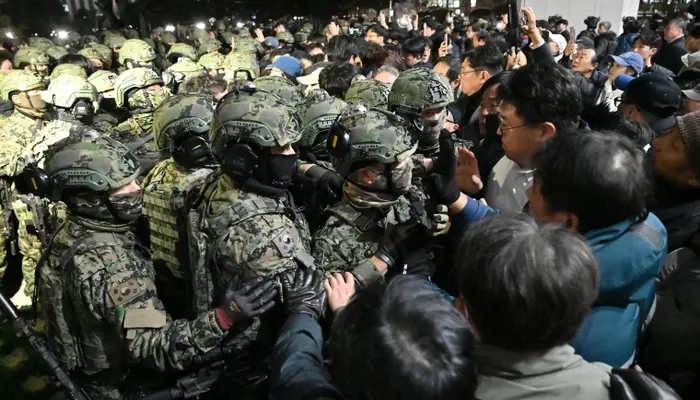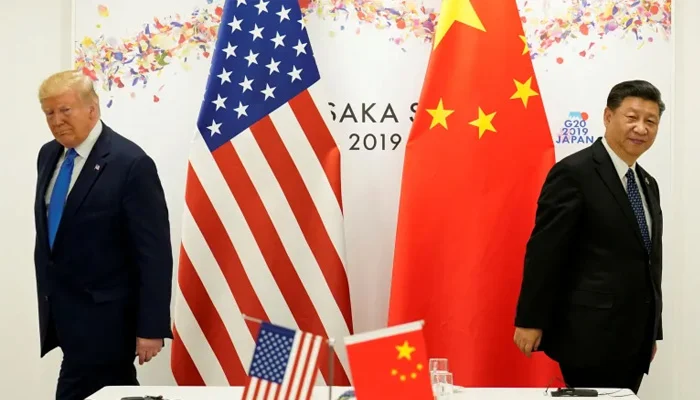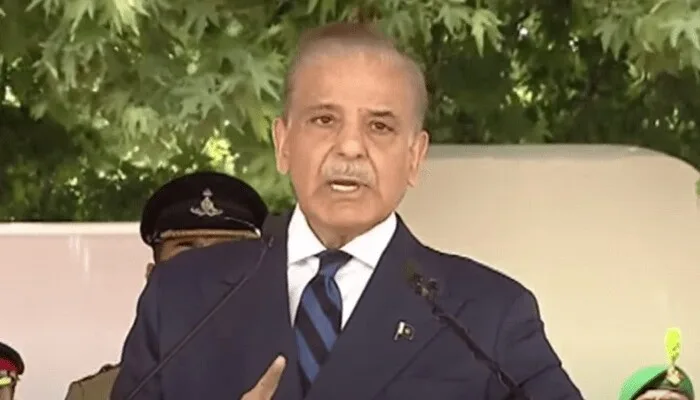
In a dramatic turn of events, South Korea’s National Assembly unanimously blocked President Yoon Suk Yeol’s martial law declaration in an emergency late-night vote. Of the 300 members, 190 lawmakers voted to invalidate the decree, forcing the withdrawal of troops from the parliament building. Citizens outside cheered the decision, chanting slogans for democracy and demanding Yoon’s resignation.Shortly after the vote, soldiers stationed at the National Assembly began retreating. Although some forces remained within the premises, many set down their gear. The scene marked a significant moment as lawmakers stood united to defend South Korea’s democratic framework.
President’s Controversial Move Sparks Outrage
President Yoon’s declaration of martial law on Tuesday night shocked the nation. Critics accused him of undermining democratic principles, citing his troubled tenure, including scandals and plummeting approval ratings. The opposition labeled the move an attempt to stifle dissent and consolidate power.
Historical Echoes of Martial Law
This declaration revived painful memories of South Korea’s authoritarian past. From Syngman Rhee’s post-Korean War dictatorship to the deadly uprisings under Gen. Park Chung-hee in the 1970s and the 1980 Gwangju massacre, South Korea’s journey to democracy has been fraught with struggles. The last martial law period in 1980 led to widespread bloodshed before democratic reforms began in the late 1980s.
Biden’s Angola Visit: A Strategic Bid to Strengthen U.S.-Africa Relations
Democracy Under Threat?
South Korea transitioned to democracy in 1988 with the election of Roh Tae-woo, marking the start of a peaceful transfer of power. However, Yoon’s recent actions have raised fears of backsliding. Woo Won-sik, the National Assembly chairman, reassured citizens, stating, “The National Assembly will defend democracy with the people.”
Geopolitical Repercussions
The instability in South Korea has implications far beyond its borders. South Korea hosts over 41,000 US military personnel at Camp Humphreys, the largest US base outside the United States. Analysts warn that any instability could affect the US’s ability to project military power in the Indo-Pacific and disrupt vital economic ties.
South Korea’s stock markets tumbled on news of the martial law declaration. With the US deeply entwined in South Korea’s economy, the instability has raised concerns about global market disruptions. Trade and investment ties between the two countries may face strain if the situation worsens.
Biden Administration Reacts
US President Joe Biden stated he was being briefed on the developments, while senior officials expressed concern over the unfolding crisis. The National Security Council confirmed ongoing communication with South Korean authorities. The Biden administration emphasized its commitment to monitoring the situation closely.
Citizens Demand Accountability
Protests erupted across the country as citizens expressed anger over Yoon’s decision. Many highlighted his mishandling of past crises, including the Itaewon crowd tragedy and corruption allegations against his wife. Public trust in his leadership has hit an all-time low, with calls for his resignation growing louder.
The opposition’s control of the National Assembly played a critical role in overturning Yoon’s decree. Liberal parties, buoyed by recent electoral successes, have become a formidable counterbalance to Yoon’s conservative administration. Analysts suggest this power dynamic may limit Yoon’s ability to push controversial measures in the future.
Although the martial law decree has been blocked, uncertainty lingers. Under South Korean law, Yoon is required to comply with the National Assembly’s vote. However, it remains unclear whether he will adhere to the legal mandate. Any refusal could further deepen the crisis and provoke a constitutional showdown.
Follow Day News on Google News, Instagram, YouTube, Facebook, Whats App, and TikTok for latest updates
















